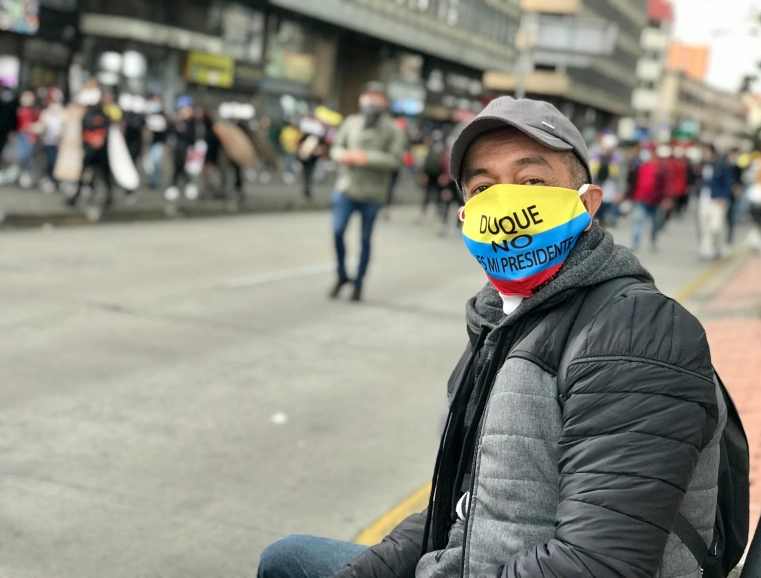
Protester wears mask that reads: "Duque is not my president"
Bogota, April 30 (RHC)-- The president of Colombia, Iván Duque, ratified this Thursday the tax reform despite massive mobilizations demanding the withdrawal of the project presented by the National Executive.
Duque reaffirmed that in case the government withdraws the project, it would imply a great uncertainty in the financial sector of the country, "to talk about a withdrawal when there is the possibility of making the total modification, if desired in Congress, would be to generate a great financial and economic uncertainty with negative effects," he added.
"We are looking for a constructive conversation. I listen to all peaceful demonstrations and this has been a presidency of dialogue, I hope that with the proposals of the parties and the different sectors, which are valuable, we can solve this situation", said the Colombian president.
Although the head of state insisted that he seeks a "national dialogue," during the interview he expressed his discontent with the massive demonstrations, "we are not arriving with red lines, we want to reach the greatest possible agreement within the institutions," he stated.
Although Duque insists that the reform does not tax food, the bill proposes an increase of the Value Added Tax (VAT) on products and services to supposedly expand the taxpayer base. Duque's controversial tax reform calls for an increase of VAT to 19 percent on public services such as energy, sewage and household gas.
Several social and political organizations have been mobilized since last Wednesday throughout Colombia, citizens expressing their resounding rejection to the tax reform bill presented by Duque, which affects the middle class and vulnerable sectors.
The National Strike Committee confirmed that the only way for the demonstrations to cease is for the bill to be withdrawn by both the Executive and the Legislative. The unions also made the decision to march on May 1, International Workers' Day, in those cities that are not under confinement due to COVID-19. In those that lack conditions, the protest will be made through social networks.

